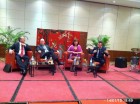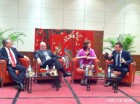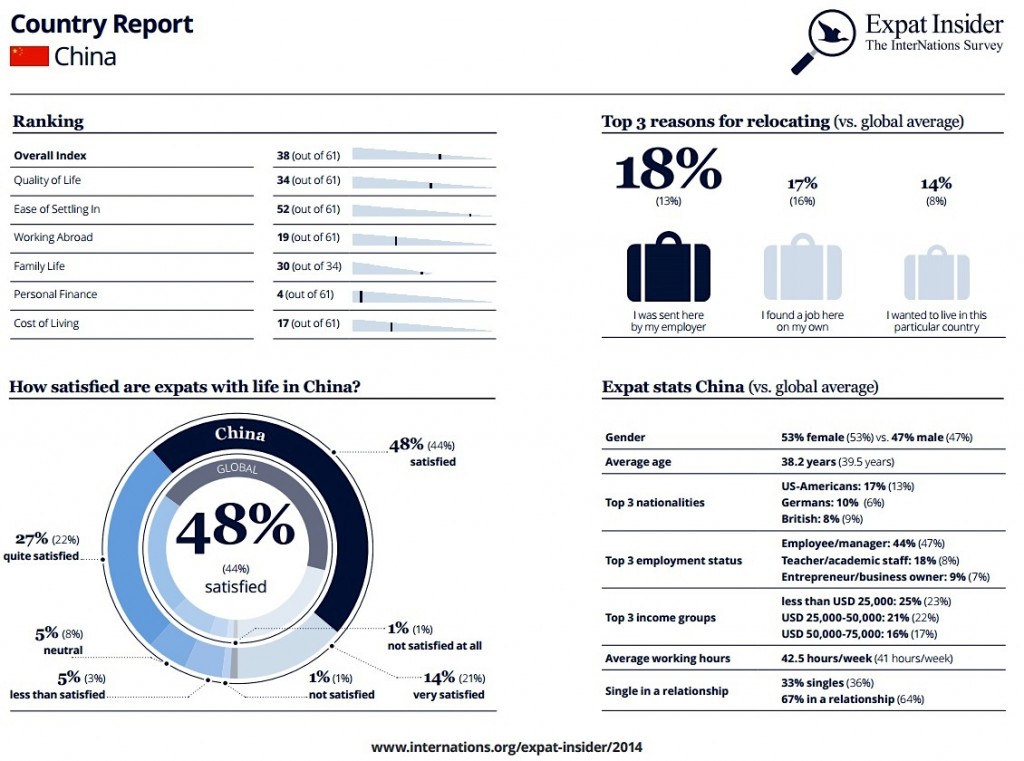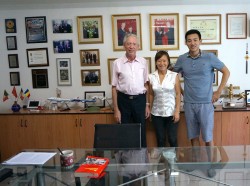On 23 November in the Capital Club Beijing I attended the seminar of InterChina about their China 2015 Annual Business Forecast, also for the 20th anniversary of the company.
Opening address and Forecast presentation were done by our Belgian friend Jan Borgonjon, President, InterChina, along with Eduardo Morcillo, Managing Partner.
Participated to the Panel Discussion:
- Mark Duval, President, AmCham BeijingZ
- Su Bahong, Director Corporate Affairs & JV Relations, Volkswagen Group China
- Bernie Stefan, Vice President Strategy & Business Development, Greater China, Nestle
Jan Borgonjon is one of the Founding Partners and President of InterChina since 1994. He has been the Director of the China Europe Management Institute (CEMI, Beijing), and later became one of the founders of the China Europe International Business School (CEIBS) in Shanghai, of which he is now a board member. From 2002 to 2006, he was a member of the executive committee of the European Union Chamber of Commerce in China. InterChina has offices in Beijing and Shanghai and a staff of over 55.
Jan can be called one of the pillars of the Belgian business community in Beijing
As for the seminar, a very well done analysis. I might not fully agree with all details but overall the research was carefully done and talking with relevant insiders.
I might have a less positive view on the attitude of the Chinese government towards foreign companies and foreigners in general. It is true MNC have to look ahead and the “golden times” are over: Chinese companies have progressed a lot. However the anti-foreign sentiment is too obvious to be ignored.
It was mentioned that Chinese companies going abroad have still a lot to learn and many Chinese companies are less flexible to switch strategies when markets and the environment change – as it the case today. Interestingly some commented that foreigner buyers get more hesitant about Chinese quality, even if products come from foreign-invested companies. I can’t but agree on all that.
It was also said that looking at companies that succeed or not, it is all very dependent on a case by case basis. In the same sector one can see companies going down while others do very well. And true that many head offices have no clue about China, I can confirm that. Now the same applies for Chinese going abroad. They are facing what we face for three decades.







